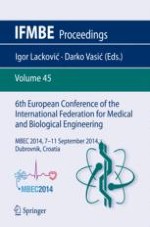2015 | OriginalPaper | Chapter
Integrating the USEFIL Assisted Living Platform; Observation from the Field
Authors : Panagiotis E. Antoniou, Evdokimos I. Konstantinidis, Antonis S. Billis, Panagiotis D. Bamidis
Published in: 6th European Conference of the International Federation for Medical and Biological Engineering
Publisher: Springer International Publishing
Activate our intelligent search to find suitable subject content or patents.
Select sections of text to find matching patents with Artificial Intelligence. powered by
Select sections of text to find additional relevant content using AI-assisted search. powered by
Ambient assisted living (AAL) platforms are seen as a viable way for managing healthcare costs in an ever aging first world population. One of the most crucial parts of AAL development is the integration of the different developed components to a functional cohesive platform. Integration strategies are many and varied catering to different system needs. The USEFIL AAL system was conceived as a platform utilizing low cost “off-the-shelf” technology and providing an independent and healthy lifestyle to elderly people. This platform like several AAL platforms reached its system integration stage consisting of relatively few components. In that context technological hurdles have been resolved in the development process of each component. For that reason in the present work the focus is on relatively simple but crucial “observations from the field” taken during the USEFIL AAL platform’s integration effort. The resulting guidelines for integration of AAL platforms are: A) Managerial clarity: Clearly defined roles both cross and within teams, robust avenues of interpersonal communication, detailed and flexible fiscal planning. B) Testing diligence: No assumptions should be made about the robustness of components or the triviality of tests. Component interconnection may lead to unexpected loss of functionality. C) Iterative functional testing: In the case of AAL systems with complex AI components the introduction of additional infrastructure may lead to significant differentiation in functionality a thing that needs to be tested and corrected if detected. D) Pre-pilot testing objectivity: Pre pilot users testing the AAL platform should be provided with minimal training in order to interact with the system as an ordinary user. Only that way they can provide genuinely original feedback. These guidelines while non-technical proved essential for the integration of USEFIL and could serve as a primer for avoiding pitfalls in the integration of similar AAL systems.
